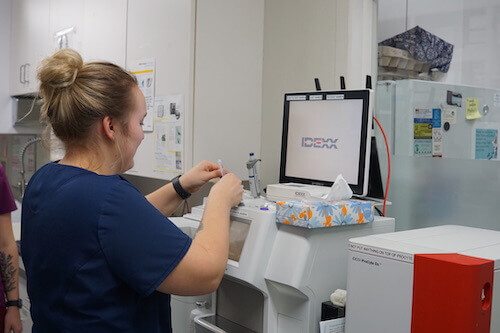Bringing an exotic pet home can be exciting, but there are some unique aspects of exotic pet care to be aware of. It may be hard at times to know when your exotic pet is sick or injured, which is why regular care is so important but emergencies do happen. Here are a few signs to tell if your exotic pet needs emergency care:
Birds
A common health condition in birds is Psittacosis, also known as parrot fever. This condition can affect many different species such as cockatiels, macaws, and lovebirds. Keep an eye out for watery droppings, strained breathing, a swollen abdomen, weakness, and inflamed eyes. Birds, especially those with the ability to fly, are also very prone to trauma.
Ferrets
If your normally lively ferret is lethargic, you notice them pawing at their mouth, or they appear confused, these are signs of Insulinoma: a severe drop in their blood glucose levels. These symptoms can progress to include seizures if left untreated.
Guinea Pigs and Rabbits
If you notice your guinea pig or rabbit is not eating or not producing feces, these can be signs of a severe gastrointestinal issue like Ileus, which can be caused by an underlying illness or stress. Left untreated, this can be a life-threatening condition and your pet should be evaluated by a veterinarian as soon as possible.
Sugar Gliders
Sugar gliders love to jump and glide but falling or landing wrong when jumping this can result in broken bones and other injuries, so watch for them dragging their hind legs. They are also susceptible to serious and potentially life-threatening nutritional deficiencies.
Some universal signs of distress for any exotic animal that warrant a trip to the emergency veterinarian include weakness, lethargy, inappetence, or respiratory difficulty. Bear in mind that exotic animals will often hide their illness as long as possible and so subtle signs can be more serious in these species than in dogs and cats. When in doubt, a veterinarian should be consulted.
If a pet emergency does occur, we’re here to help 24/7, 365 days a year! Call the Emergency Veterinary Hospital in Springfield at (541) 746-0112 to alert us that you’re on the way to our animal hospital, if possible, or to learn more about our services.


